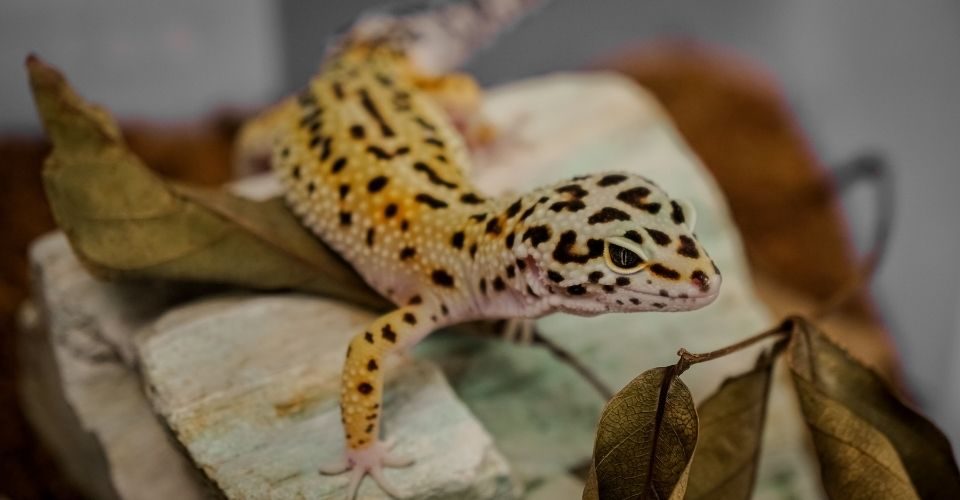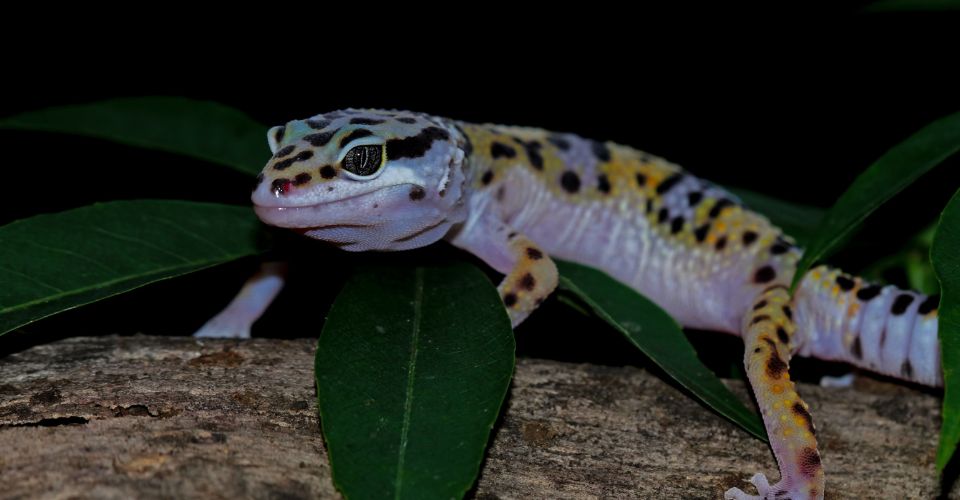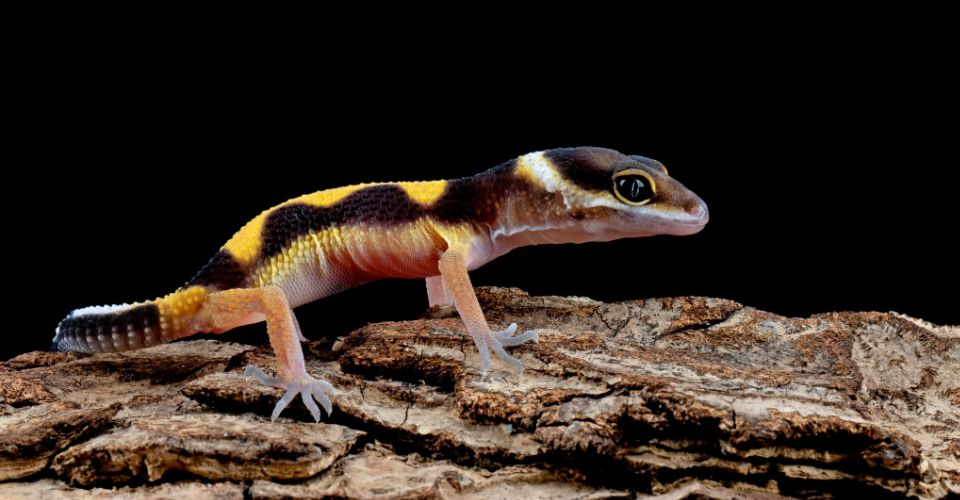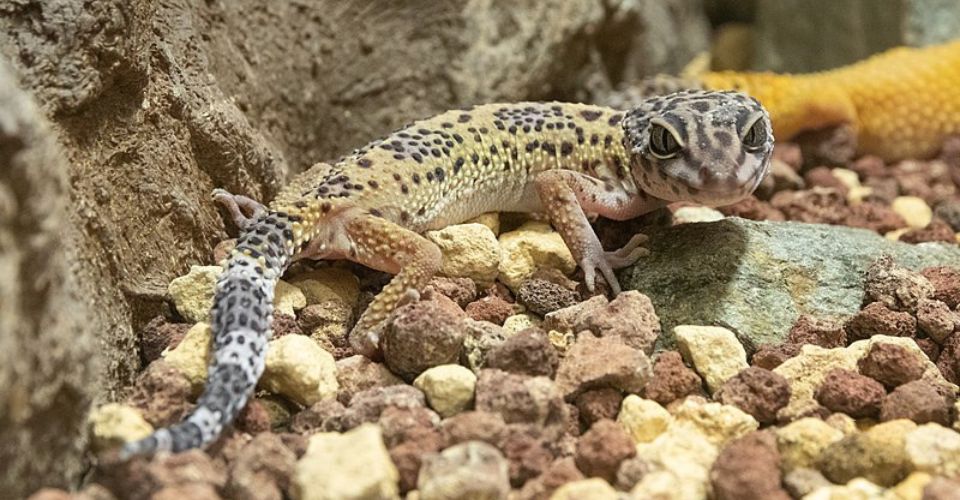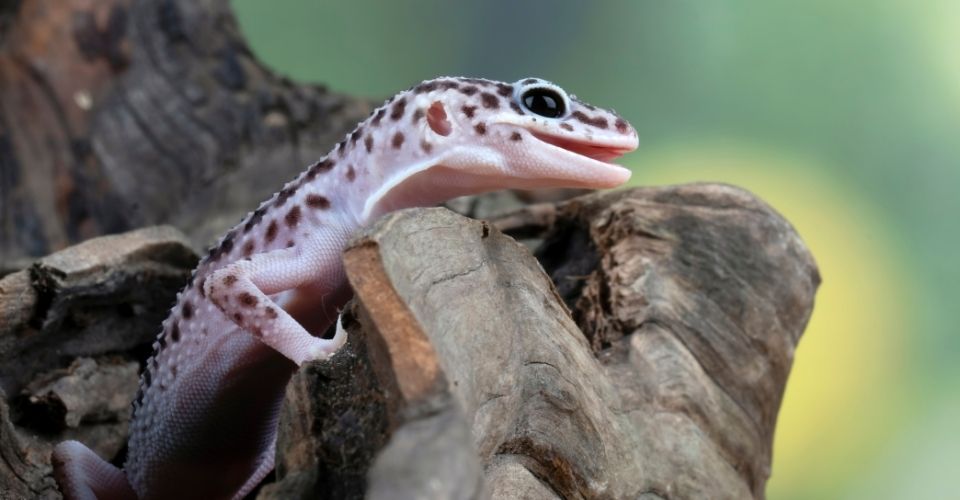As a first-time gecko-owner, you may have a lot of questions regarding the diet and health of a Leopard gecko. One such concern, which is very common and every Leopard gecko owner has, is: Can Leopard Geckos eat fruit? Is it okay to feed human food to geckos?
The answer to these questions is, no, Leopard gecko CANNOT eat fruit—or human food. But then the question arises, why they cannot?
To understand it better, we need to look into the physiology of Leopard geckos, their digestion process, and the foods that are safe or unsafe for them. So, let’s take a closer look into a gecko’s diet. We have added a list of signs and symptoms a gecko exhibits when it consumes something harmful.
Additionally, we have also touched upon what needs to be done when a gecko accidentally eats fruit or vegetable.
Why Leopard Geckos Cannot Eat Fruit?
As we already stated that Leopard geckos cannot eat fruit, it is important to understand the reasons behind this. Below, we have listed down 9 reasons why a gecko cannot eat fruit or vegetables.
1. They Are Insectivores
Leopard geckos are insectivorous reptiles—meaning, they primarily feed upon live insects and bugs. Because of them being insectivores, their bodies are designed only to digest foods like crickets, worms, locusts, grasshoppers, and mealworms. They cannot digest foods like vegetables or fruits.
2. Their Bodies Lack Cecum
Another reason why a Leopard gecko cannot eat fruit is that their bodies lack Cecum—the body part which digests the cellulose found in fruits and vegetables. Without this part, their bodies cannot digest this cellulose.
3. They Have Short Digestive Tracts
One other possible reason why a Leopard gecko may not be able to digest fruits and vegetables is that they have short digestive tracts, which are alkaline. To be able to digest foods like vegetables and fruits, the digestive tract should be longer and more acidic.
4. Small Jaws
If you look at the shape of a Leopard gecko’s head and jaw, you will notice it is small. Their jaw is developed only to consume meat and insects. If they consume fruit and vegetables, it is bound to create problems for them.
5. No Nutritional Benefits for Geckos
A Leopard gecko may eat fruit or vegetables when it is available to them. But even then, it doesn’t benefit their bodies in any way. This has more to do with their evolution. Since fruit doesn’t offer any nutritional benefits to them, their bodies have adapted themselves to what is better for them—and what benefits them are insects.
6. Plaque Buildup
Fruits are loaded with sugars that can result in plaque buildup. This plaque subsequently results in Ulcerative Stomatitis—a mouth rotting disease. If this disease is left untreated, it can even kill a gecko. Sugar overload can also lead to obesity and diabetes in geckos.
7. Fruits Create a Mineral Imbalance
The bodies of these geckos are designed to have calcium and phosphorus in a 2:1 proportion. Anything above or below this range would disrupt a gecko’s body function. When a gecko eats fruit, it will disturb the calcium and phosphorous ratio in its body.
8. Health Risks of Geckos Eating Fruits
Consuming fruits can also lead up to Hypovitaminosis or Hypervitaminosis in geckos. This means eating fruits can play havoc with the balance of vitamins in its body. This can lead to death if left untreated.
9. Pesticides and Insecticides
Fruits may have insecticides or pesticides on their skin. Although they don’t kill a gecko, there is a chance these chemicals cause metabolic stress in a gecko. Therefore, even if the fruit itself may not harm your gecko, the chemicals on the fruit’s skin can.
Consequences of Feeding Fruit to Leopard Gecko
Now that we know why Leopard geckos cannot eat fruit, we would see what may happen if a Leo consumes fruits or vegetables.
Below are the signs and symptoms geckos may show if they consume fruits or any other food that is not suitable for them.
a. Stomach Upset
When a gecko consumes fruit, it may end up getting an upset stomach. This will affect its digestion and ultimately will harm your gecko’s stomach and intestines.
b. Regurgitation
This happens when a gecko cannot digest food. Too much regurgitation can harm a gecko’s esophagus.
c. Metabolic Bone Disease
If the calcium and phosphorus ratio in a gecko’s body is disrupted, it can result in Metabolic Bone Disease.
d. Obesity and Diabetes
As we know fruits are loaded with sugars, this can result in weight gain issues as well as diabetes. If a gecko’s tummy is not flat without food in it, this means it has gained extra weight. Although Leopard geckos grow big with time, they have to maintain weight to stay healthy.
e. Plaque Buildup
The sugars in fruits can also cause plaque buildup in a gecko’s mouth. This is a painful condition and is also known as a mouth-rotting disease.
f. Choking
Another possible consequence of a gecko consuming fruits can be choking. A gecko can choke on the skin of a fruit which is hard. It can become difficult for a gecko to chew or ingest the skin of a fruit.
What to do If My Leopard Gecko Becomes Sick after Eating Fruit?
It may happen someday that a gecko consumes fruit or vegetable accidentally. Or it is also possible you didn’t know it may be harmful to a gecko to eat food other than insects, and you fed it a fruit. Thus, what needs to be done in such a case? If you find out a gecko has consumed something it shouldn’t have eaten, you can do the following to keep your gecko safe from becoming sick.
- First things first, it is always better to contact a vet when any pet is unwell or has consumed something unsafe. Call your vet or take your gecko to a vet’s clinic to get it checked for symptoms of anything serious.
- If you have more than one gecko and you are not sure what may be causing the sickness in one of them, it is advised to keep it separate from other geckos. Isolate the sick gecko to prevent the sickness from spreading to other geckos.
- Observe your Leo closely, so you know what the signs and symptoms of the sickness are. It will help you clearly communicate your concerns and findings to a vet.
- If your gecko consumes fruit and becomes sick, there is no need to panic. They may start getting better on their own—if the food consumed is in a very small amount or if it doesn’t show any adverse signs. But you need to keep an eye on the signs they exhibit. It is also not advisable to delay seeking medical help. Going to a vet on time can save your gecko’s life and prevent its health from deteriorating.
- A happy and healthy gecko is active, but an unwell gecko, on the other hand, may become lethargic, lose appetite, be inactive or uninterested in its surrounding, and make loud sounds. It may also move with jerks and keep its eyes closed, even when it is awake. If you notice these or other unusual signs, it is advised to take your gecko to a vet’s clinic.
Conclusion
So, can Leopard Geckos eat fruit? No, they cannot. These geckos are insectivores, and they only feed upon live insects. Their bodies are designed in a way that they cannot digest fruits or vegetables. They also lack the body parts and chemicals required to digest foods like fruits. If they consume such foods, it may make them sick. They can become obese, diabetic, or can suffer from Metabolic Bone disease.
Too much sugar from the fruits can also result in plaque buildup in their mouths. They can also suffer from diarrhea if they eat fruit because the skin of a fruit is hard to digest. The skin of the fruit can also cause choking or regurgitation in a gecko. Thus, it is important to prevent your gecko from consuming fruits, vegetables, and other foods that may be harmful to a Leopard gecko.

